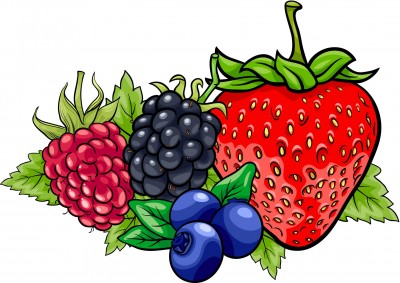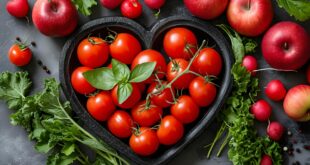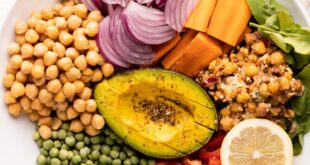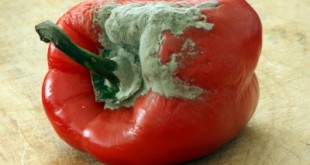In last week’s article on berries, we looked at some of their health-promoting constituents. With the use of black raspberries, there have been some encouraging reports of cancer-preventive qualities. Studies have also shown a reduction in tumor volume and the regulation of genes associated with cancer.
Harvested during July, Oregon provides approximately 95% of the country’s supply (about 4 million pounds per year). Only 5%, however, are sold fresh-picked. The remainder is sold as frozen, pureed, or in concentrated juice products.
Berries and Colon Tumors
Black raspberries are rich in substances believed to prevent cancer. In comparison with strawberries and blueberries, black raspberries were found to outweigh them in antioxidant activity: 11% more than blueberries and 40% more than strawberries.
To determine cancer-preventive effects of berries, rats were given a carcinogenic agent that causes colon tumors and then fed a diet rich in freeze-dried black raspberries. The results indicated 80% fewer malignant tumors of the colon than rats given a diet without berries. The more berries they ate, the fewer tumors they had. The tumors were also found to be smaller in size in the berry-fed rats than the ones with a berry-free diet.
Berries and Breast Tumors
Another study on estrogen-positive breast tumors found that rats given a diet which included black raspberries for six months showed a reduction in breast tumor volume by 70 percent (60 percent reduction with blueberries).
Berries and Gene Regulation
Research indicates that berries may also affect genes that are associated with cancer. In a study of rats with a carcinogen-induced esophageal cancer, they noted 2,261 dysregulated genes after a one-week exposure to the carcinogen. Of these, 462 genes were modulated (regulated) to almost normal expression by using a diet of freeze-dried black raspberries.
The Vine and the Branch
“I am the true vine, and my Father is the husbandman.” (John 15:1 / KJV)
Jesus the Son is the Vine. God the Father is the gardener or caretaker.
“Every branch in me that beareth not fruit he taketh away: and every branch that beareth fruit, he purgeth it, that it may bring more fruit.” (John 15:2 / KJV)
We, the believers in Jesus Christ as our Lord and Savior, are the branches. God often uses trials to prune us so that we can bear more fruit.
“Abide in me, and I in you. As the branch cannot bear fruit of itself, except it abide in the vine; no more can ye, except ye abide in me.” (John 15:4 / KJV)
If we are connected to the Vine (talking to the Lord frequently throughout our day, obeying His commandments, letting Him guide us, reading His Word so that we might know Him more intimately), then our attitudes and actions will indicate that we belong to Him. Our attitudes and actions are our fruit.
Jesus is the only cure for the “cancer” of sin. Do you know the Vine? If so, are you connected and bearing fruit? What struggles have you experienced this week that have made it difficult for you to bear abundant fruit?
 The Bottom Line, Ministries Christian News, Articles, & Poetry
The Bottom Line, Ministries Christian News, Articles, & Poetry 





Thanks Denise, I had never heard of the benefits of eating black raspberries. Do red raspberries offer the same cancer-fighting properties?
Thank you, Melinda. Red raspberries have lots of antioxidants which help fight cancer. They also have ellagic acid. Memorial Sloan Kettering Cancer Center notes that pre-clinical studies have indicated anti-cancer effects of ellagic acid against liver, esophageal, prostate, and colorectal cancer lines (most studies using rats; human studies yet to be conducted). Another study a few years ago using Meeker red raspberries found a significant effect in inactivating a breast cancer cell line.